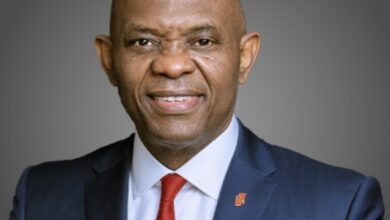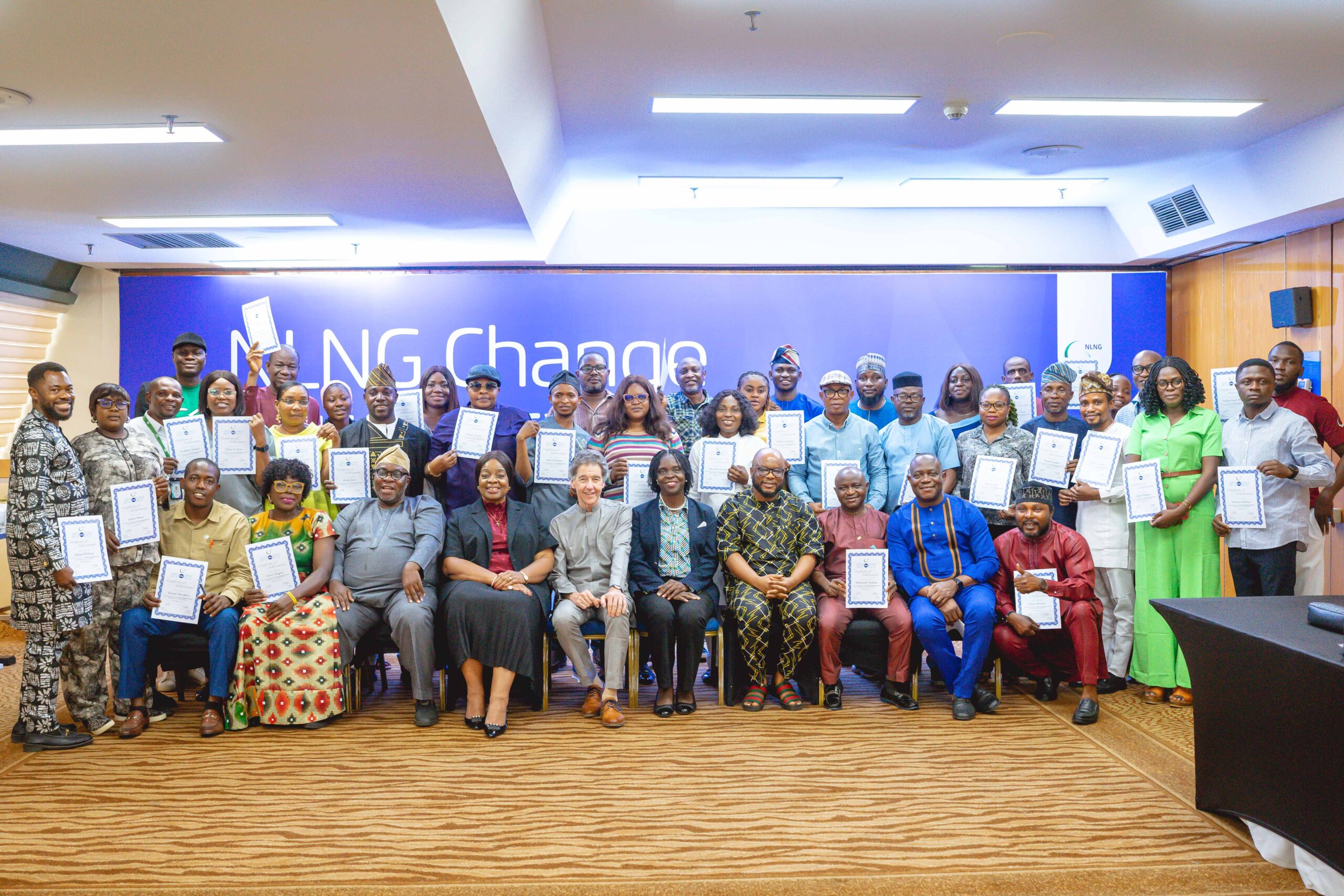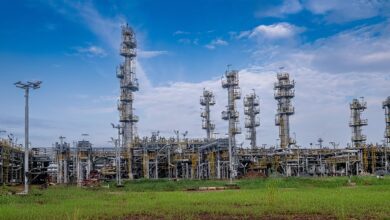
The Group Chief Executive Officer (GCEO) of the Nigerian National Petroleum Company Limited (NNPC Ltd), Mr Bayo Ojulari has stated that although the local content in upstream projects in Nigeria has grown from 26% in 2016 to over 54% in 2024, the growth is still inadequate.
Mr Ojulari spoke on Thursday in Abuja, at the 2025 edition of the Oloibiri Lecture Series and Energy (OLEF), organized by the Society of Petroleum Engineers (SPE) Nigeria Council, with the theme: “Driving Energy Stability Through Technology, Policy and Supply Chain Excellence.”
He said for NNPC Limited, local content development is not a regulatory burden, but a strategic imperative.
The NNPC GCEO, who was ably represented by the Executive Vice President Upstream, Udy Ntia, submitted that the the Oil and Gas Industry Content Development (NOGIC) Act, has catalysed over 10 billion in in-country value addition since 2020.
Stating that a significant portion of the NNPCL projects’ components are sourced locally, and are working assiduously with the NCDMB to scale it up by 2027.
In alignment with Nigeria’s energy transition plan, which seeks to achieve net zero emissions by 2060, Mr Ojulari said “NNPC Limited has initiated several gas-led transition programs, including the expansion of autogas program targeting over one million vehicles through 2026, the completion of critical backbone infrastructure such as the AKK pipeline, which is about 72 percent complete as we speak, first quarter 2025, and also the planned integration of green hydrogen feasibility studies into long-term strategy.”
He said in order to ensure energy security for over 200 million Nigerians, the NNPC Limited as an energy company plays a key role in the power sector, contributing about 1.5 gigawatts of installed power capacity to the country, with one gigawatt of bi-IPP JV phases one and two, 650 megawatts of farm JV, and 50 megawatts Maiduguri emergency power plants.
Speaking further on energy transition, Mr Ojulari said, “energy transition is not a story. It is a global necessity, but its pathways must be shaped by local realities. Africa cannot afford a transition that leaves its people in the dark. Our energy future must be inclusive, not just sovereign.
“The journey toward energy sustainability is not a sprint. It is a marathon, but it is one we must run with clarity, courage, and collaboration.
“As the world demands cleaner energy, let us remind ourselves that Africa, and Nigeria in particular, must define its own pathway, a pathway built on our resources, our realities, and our resilience. At NNPC, we are not merely adapting to the future. We are shaping the future,” he said.
Also speaking, the Commission Chief Executive of the Nigerian Upstream Petroleum Regulatory Commission (NUPRC), Engr. Gbenga Komolafe, said NUPRC is proud to be associated with the illustrious organization whose ideas of enabling the industry to meet energy demand in a safe, environmentally responsible, and sustainable manner are in alignment with those of the Commission.
He said, the Commission’s regulatory framework is not just about industry oversight, but also about actively shaping a sustainable and prosperous energy landscape for Nigeria. We are not just a regulator, but we are business enablers.
“As we converge here, we must recognize the pivotal role that the energy sector plays in driving socioeconomic development and prosperity, fostering sustainable growth, and addressing pressing global challenges, including climate change and energy security,” added.
Engr. Komolafe, who was represented at the event underscored the need to make concerted efforts to wade through the fragile business environment by eliminating efficiency, reduce costs, build partnerships, and ensure collaboration in the industry.
He told the participants that NUPRC is driving energy sustainability through regulatory enablement based on the following five-pronged approach:
“One, introducing responsive and efficient regulation to entrench clarity and predictability. Two, advising governments on national initiatives and strategic direction to govern upstream operation.Three, enabling technology adaptation and deployment for cost-effective, optimized, and sustainable development and production operations. Four, create opportunities for industry service providers and the supply chain and ensure the vibrancy of the industry. Five, entrenching decarbonization of upstream operation to facilitate sustained investments and environmental stewardship.”
Earlier, the Chairman, SPE, Nigeria Council, Engr. Amina Danmadami said, since 1991, OLEF has stood as a symbol of dialogue, innovation, and policy engagement in Nigeria’s oil and gas landscape.
“It commemorates the first commercial discovery of oil in Nigeria in Oloibiri, Bayelsa State—an event that forever changed the trajectory of our nation’s economic history,” she added.
According to Engr. Danmadami, OLEF continues to serve as a convergence point for stakeholders across government, industry, and academia to reflect, project, and act.
She said while the global conversation may lean heavily toward renewables, oil and gas will remain central to Nigeria’s economic stability, energy security, and industrial growth for decades to come.
Noting: “The path to sustainability in our context is not one of displacement, but one of optimization—leveraging technology to drive efficiency, tightening our supply chains, and creating enabling policies to enhance sector resilience.
“Technology—whether through digital oilfields, reservoir optimization, AI-based predictive maintenance, or enhanced recovery techniques—continues to be a powerful enabler.
With the right investments and strategic partnerships, these innovations can significantly improve productivity, reduce environmental impact, and enhance asset integrity.
“Policy plays a guiding role. The implementation of the Petroleum Industry Act (PIA) is a landmark reform, and we must continue to align our operations and investments within its framework to ensure sector transparency, efficiency, and investor confidence.
“Equally, supply chain excellence must become a strategic priority. From local content development to procurement integrity and logistics optimization, a robust supply chain is vital for cost competitiveness and business continuity,” she noted.
The SPE Chair stated that the program was structured to ignite practical discussions and generate actionable insights.
His Remarks, the Executive Secretary of the Petroleum Technology Development Fund (PTDF), Mr Aminu Galadima, pledged the Fund continuous support for initiatives like OLEF that drive innovation, empower professionals, and shape policies that will define the future of energy in Nigeria.
Represented by the General Manager, Projects Department, Ifeoma Nwokik, Mr Galadima said since 2015, PTDF has remained a consistent supporter of the OLEF, recognizing its strategic value as a platform for policy dialogue, stakeholder engagement, and forward-thinking discourse on energy development in Nigeria and Sub-Saharan Africa.
He said, “the annual lecture series, commemorating the historic 1956 oil discovery at Oloibiri, represents more than a celebration of our petroleum legacy—it reflects our collective aspirations for sustainable energy growth through innovation, strategic partnerships, and capacity building.
“I commend the Society of Petroleum Engineers (SPE) for their unwavering dedication to this cause. We are proud to provide not just a venue, but a conducive environment for impactful dialogue.”






